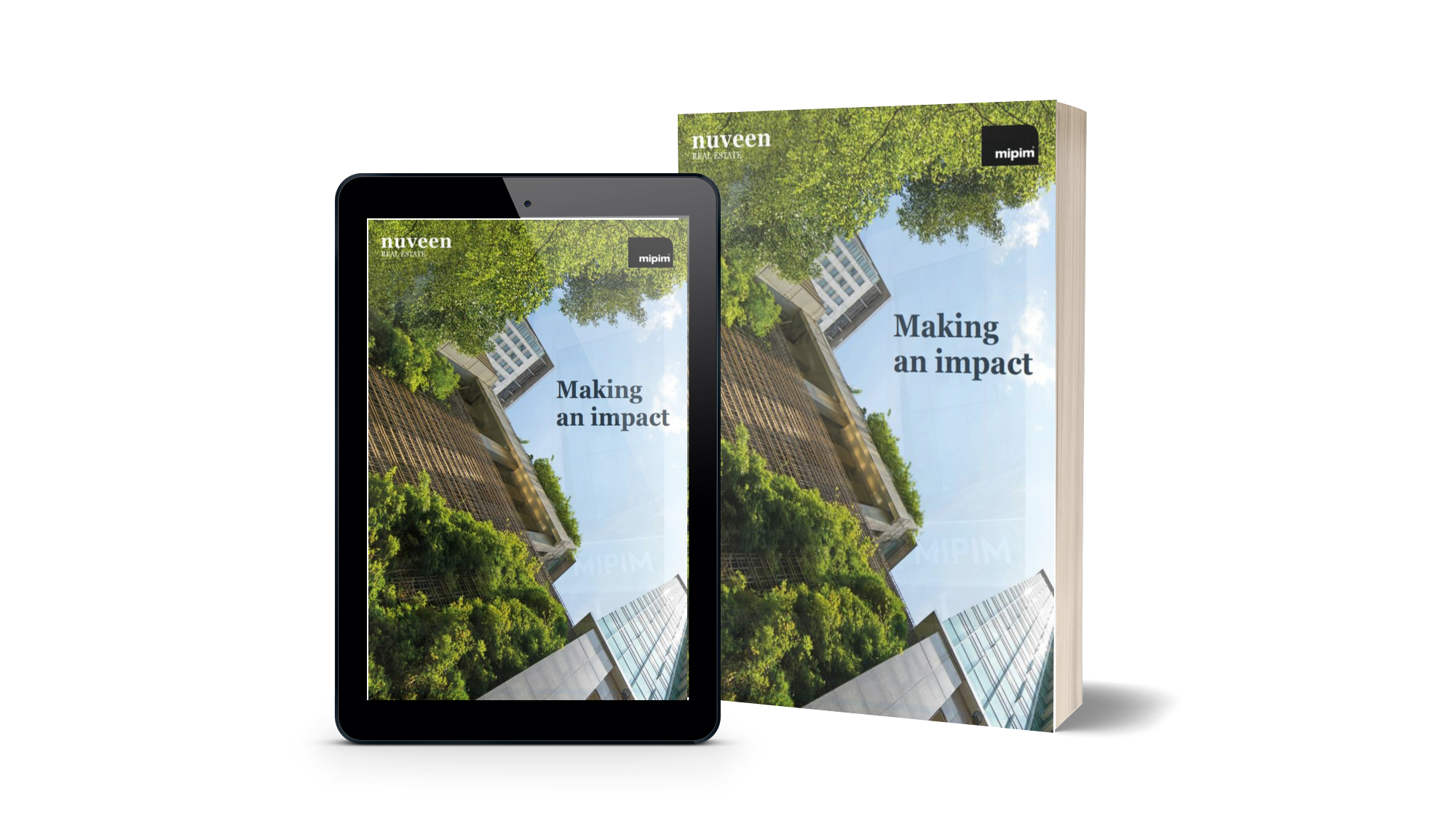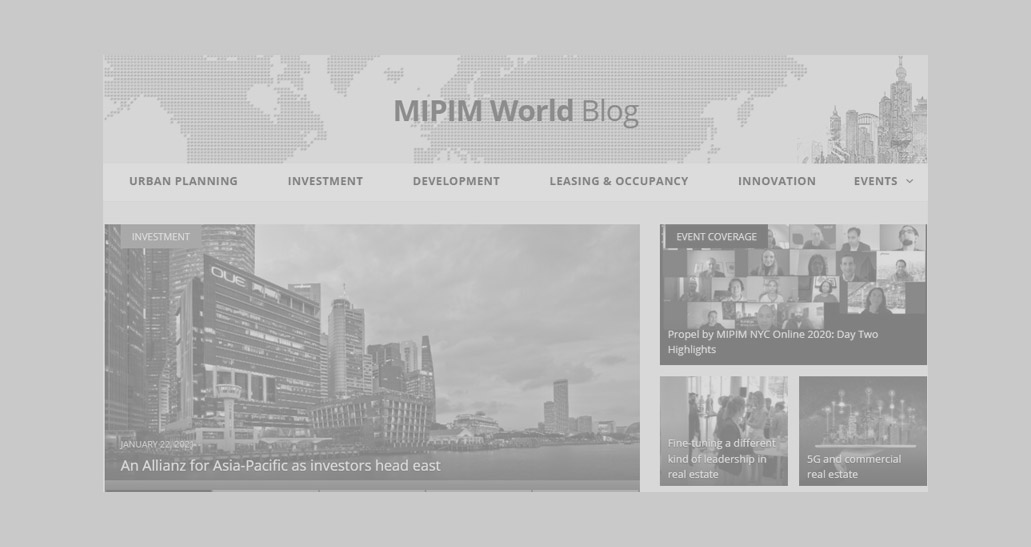This week on “Contributor Series”, Antony Slumbers, Member of the Leadership Board, CRETech & Mentor at MetaProp RE200 shares his views and experience on Real Estate as a service. Watch out for the next one!

"Making an impact"- White paper
Successful impact investing in real estate
In 1997 Steve Jobs returned to being CEO of Apple, having been summarily dismissed from the company he founded some twelve years earlier. The company was in a mess, within weeks of going bankrupt. What had once worked so well no longer did. Past successes now meant nothing. Something new was needed, something big. Or else the company would die.
At a public event shortly after returning Jobs faced a hostile questioner who said he ‘did not know what he was talking about’ and Apple no longer had a future in ‘modern computing’. Jobs’ response was that it was not computing that mattered:
“You have to start with the customer experience and work backwards to the technology”
And in those 14 words, he tells us all exactly where the future of PropTech, and Real Estate, lies. With our customers.
In this and four articles to follow I will be explaining how our industry is changing fundamentally, driven by the changing nature of demand. How new technologies are enabling new behaviours and catalysing new wants, needs and desires. Occupiers, Real Estate Companies and Investors will all be impacted. Value chains will be upended, new business models will develop and old certainties will fade away. The endpoint, a better-built environment, is clear but the roadmap to get there is not.
The future will not be a mere extrapolation of the past and there will be many, substantial losers. But there will also be a wave of new winners, creating better products and services that the losers will not know how to compete with, but customers will delight in. The best new companies (PropTech driven but no longer confined within the restrictions of that term) will co-create with all their stakeholder’s customer-centric products and services that match user expectations in a way that seems improbable today. But then, in 1997 it seemed improbable that Apple would be the most valuable company in the world 22 years later.
THE CHANGING NATURE OF DEMAND
Real Estate is an industry that historically has mainly talked to itself. And from the top down. At the top of the tree stood the Capital Markets. Everything sprang from what could be financed. No finance equalled no development.
No real estate. Sell or Lease, the entity that signed the cheque was really (though we hate to admit it) the only thing that mattered. Real Estate as Bond was/is how the market worked.
Over the next 10 years, this is the fundamental about real estate that will change more than anything else. Obviously, finance is important, it always will be, but a la Steve Jobs, the customer is even more important. Real estate is moving from an industry with Bond-like characteristics to one where the value will be found in the operation, and optimisation, of businesses. Income, not rent, will be the bottom line.

Above: Simon Wardley
This matters, a lot. It is commonplace for PropTech companies to bemoan the lack of innovation, and unwillingness to actively embrace new technologies, amongst real estate companies. This though is to misunderstand the dynamics of the industry. The successful real estate companies are not run by fools, rather they are run by managers who are optimising their businesses for their market. And the current and historic market has insisted on stable long term incomes, low expenses, no shocks and no surprises. These are mature Product businesses, top right of the Charles Handy ’S’ curve, where six sigma is nirvana and perfecting the past is the business model.
The future of real estate is the opposite. Top right is low returns and slow death. Bottom left to the vertical middle is where the value will be created. Why? Because real estate is moving from being an industry that sells a product, to one that delivers a Service. And that means the dynamics of the market, and the industry will undergo significant change, dislocation even.
Organisationally, financially, culturally Product companies are different from Service companies. The former is set up to create a physical object and then sell it, a one-off or minimal touch transaction whereas the latter is about developing an ongoing, meaningful high touch relationship with one’s customer. The internal corporate requirements are entirely different. How these are managed going forward will be interesting to watch, as there are three strategies to choose from, which we will cover in a later article.
Why is this happening? What is driving a structural shift of this magnitude? It sounds a bit dramatic; is all of this for real?
I believe it is because it is not something specific to real estate. All industries are grappling with the same shifting sands, and almost everything can be bracketed under the banner of the move from valuing access above ownership. We are becoming a society where we are less bothered about accumulating more ‘stuff’ and more interested in having access to whatever we want, on-demand, when and wherever we want it.
So you have Netflix for film, Spotify for Music, Airbnb for accommodation, Deliveroo for food deliveries, Uber for transportation and, growing faster than any other category, the likes of Lime scooters for micro mobility.
With a £25 million 1980’s supercomputer in all of our pockets, giving us access both to ‘all the world’s information’ but also a sort of universal remote control, we all have the ability to summon up what we want, when we want it. As the world around us has become more and more digitised our lives are becoming increasingly lightweight. We simply do not need physical objects in the way we once did. And judging from the enormous, and global, take up of these new virtual services, it seems we are largely very happy with this new way of living.
So how could we think that real estate will be immune from this trend? Why shouldn’t people want ‘Space as a Service’? Frankly, who would not want to be able to access the spaces and services, they want as and when they wanted them.

Margaret Thatcher famously said ‘you cannot buck the market’, and she was right. Companies across many walks of life are raising the bar as to the features, functionality and services we are all becoming used to. There is an
absolute certainty that real estate will have to do the same. Across all asset classes.
There is a saying in the tech industry that there are two ways to make money in tech; bundling and unbundling. And whilst it sounds facetious it is a strong point; as everything becomes digitised it is easier to create a wide range of new products and services by assembling different mixes of functionality aimed at particular needs or market segments. And this will come to pass in real estate, as assets start to be joined together in new ways. Work has left the building’ and so has shopping. Few people now NEED an office to do their work, or a shop to do their shopping. They can just as easily do either from their home, or from a co-working centre, or from a Hotel lobby, or in fact, anywhere there is a solid, reliable internet connection. The key now is where do people WANT to work, or shop, or live? Why is shopping found in one part of a city, and work in another, whilst we live somewhere else entirely? We have designed all of our spaces around particular needs that required certain services to be possible, but in a lightweight digital world, this is no longer necessary. We can pretty much do anything anywhere. And we can mix things up; retail within an office building is as likely as an office within a shopping centre. Or a co-working space attached to a co-living one. Bundling and unbundling. Refactoring space to be monetised in the most effective combination of uses, which might even change dependant on the time of day, or year. None of this would be possible without new technologies, and PropTech is but a layer on top of other infrastructure and capabilities we now have easy access to. And there is no going back; once we have the technological ability to do certain things you can guarantee they will be done. Societal behaviour changes as a result of new technological capabilities, rather than the other way around. We demand things that are possible, and we demand more and more of those things we like.

"Making an impact"- White paper
Successful impact investing in real estate
Once the real estate industry gets to grip with being in the Service, not the Product business, there will be an explosion of new business models and variations of service offerings. Instead of flexibility in everything being considered a burden, the smarter operators will realise that the demand is out there, ready, willing and able to pay for something better than they have now.
A great user experience, in a great building, is what people want. Why wouldn’t they?
Delivering that great user experience though will not be easy, and will require a mix of skills the industry does not currently have, and a grasp of the technology trends that few have. What these are, and how to acquire them, will be the subject of the next article.



